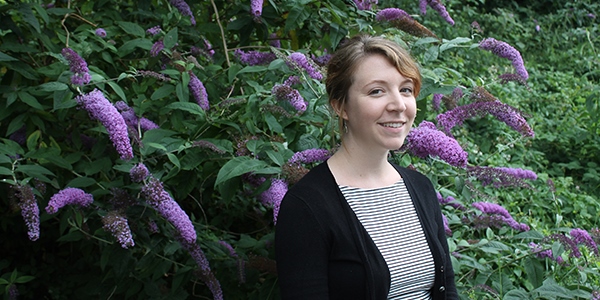Using human rights to fight disability discrimination
Melbourne Law School's new subject, the Disability Human Rights Clinic (DHRC), addresses discrimination on the basis of disability head on.

Dr Anna Arstein-Kerslake, the designer and director for the DHRC
Students of the latest PILI (Public Interest Law Initiative) subject both study the law as it relates to disability and human rights, as well as actively engaging in advocacy and litigation.
Director of the clinic, Dr Anna Arstein-Kerslake, says the clinic is the first of its kind in Australia.
"While there are student clinics which offer social services support to clients with a disability, and others which engage in general human rights law advocacy, this is the first clinic to target the issues which arise at the intersection of human rights and disability."
Classes in the clinic are structured like a typical day in an NGO. Students come together for a board meeting, before separating into their practice groups for meetings with clients and submission drafting. The teams engage in two types of work: strategic litigation as well as policy and legislative advocacy.
Current projects include workshops for the NDIS appeals tribunal, a joint project with Vic Legal Aid looking to reframe discrimination as a public health issue, and a submission to the UN on the interaction between cognitive disabilities and the legal concept of fitness to plead.
And just recently, the clinic's first project came to fruition. Two students, Henry Macphillamy and Ashleigh Pinto, delivered a policy briefing on the right to educate to the student services board of the University of Divinity.
Many of the 19 students who are taking part have a personal connection to the issues that arise.
Juris Doctor student Henry Macphillamy says the clinic addresses issues that are very important to him.
"The Disability Human Rights Clinic has a unique place in my interests, as I have visual and hearing impairments. I know that the skills I learn in this subject will apply to each and every day that I practise law."
JD student Sarah Mercer finds the opportunity to combine study with real-life advocacy valuable.
"A member of my family lives with mental illness, so disability issues – particularly around those disabilities that aren't visible – have been a key interest to me," she says.
Dr Arstein-Kerslake, the designer of the programme, has a background in activism and academia. She has consulted with the UN, Amnesty and the Ministries of Justice in the UK and Ireland.
She believes the course structure, which combines clinical experience with cutting edge academic research, offers students the opportunity to get a profound understanding of the issues to do with disability and human rights.At the same time, students can offer services that often exceed what is available in the market. This is because they can research the issues throughout the course of an academic semester, whereas a private provider is constrained by time and cost.